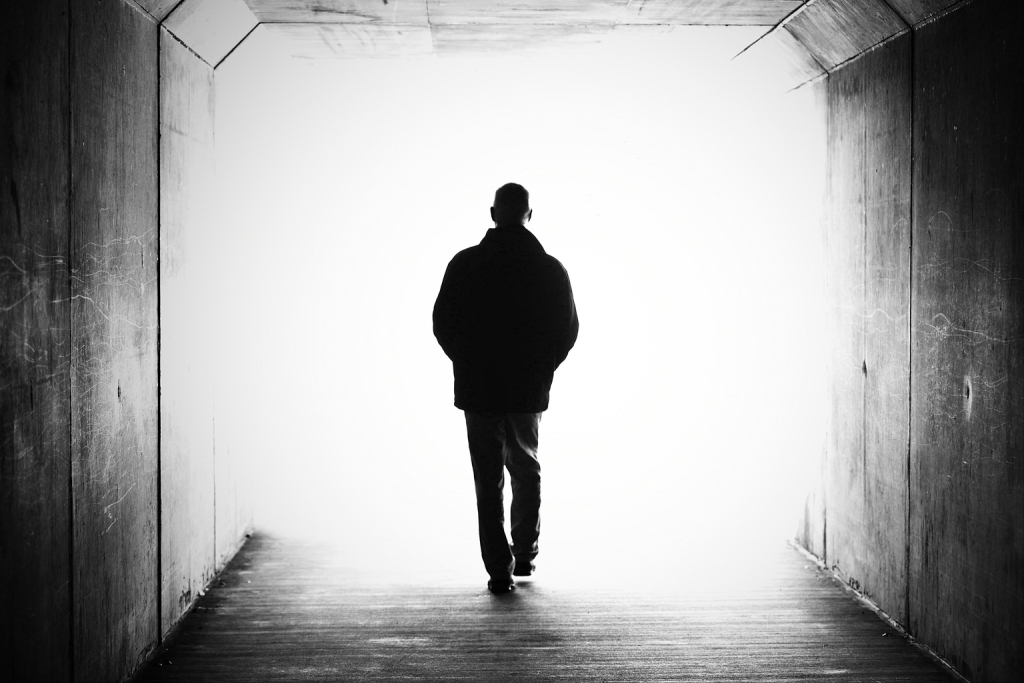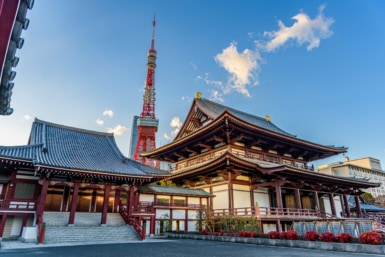I began walking in the early mornings, this year, to become myself. A version of myself which hadn’t previously existed. I started waking up, naturally, around five, which was odd as I’ve never really been an early riser. I stepped into my battered Adidas Stan Smiths with the illustration on the tongue of the man himself grinning up at me, goading me and urging me, unsuccessfully, to go back to bed.
At this particular juncture, in May, I didn’t walk for too long. An hour-long course around a few unpretentious suburbs of Ikebukuro. The lampposts were tied with flags promoting the canceled 2020 Tokyo Olympics and they hung limply almost with their heads turned in disappointment and shame. There were the usual dog walkers, plenty of geriatrics (I was the youngest person walking) and a gaggle of construction workers waiting to be picked up in dusty trucks by guys probably called Kato, Sato or Watanabe.
There were also a quite startling array of oddballs wandering the streets of Tokyo at dawn. A scruffy twenty-something holding a giant silver birdcage in his right hand with a glowing budgerigar perched inside and a transistor radio blaring news programs in his left mitt. A ramen store owner peering out between the noren that decorates the outside of his store waiting to confront the person that hadn’t been following the trash instructions. A young guy in a boxing outfit (robe included) and a random fifty-year-old man, complete with tongs and plastic bag, picking up trash and bits of grass on the side of a main road giving passersby evil looks. It was all part and parcel of my morning walk.
“Who would have ever thought that a middle-aged man could descend to such depths?”
I strolled through the Zelkova-filled streets of Senkawa Dori in Ekoda, a cute college town a few stops from Ikebukuro, with its tiny bakeries, ramen shops and vintage stores. As I approached Ochiai Minami-Nagasaki I looked up and made out the NTT Docomo Yoyogi Building in the near distance and thought about walking there and traversing the early morning streets of Yoyogi and Shinjuku but shuddered at the thought of drunken salarymen and hosts and hostesses heading home.
Haruki Murakami writes, in his exceptional What I Talk About When I Talk About Running, about why he runs and about the pleasure and pain he experiences from this lifelong passion. It’s not really a choice. You have no choice. It’s a way to survive, a compulsion and ultimately a method of coping with the chaos and unpredictability that life throws at you with alarming speed and regularity.
At the beginning of this year (2020), I weighed a hefty 116 kilograms which is far too much for a man who stands at 5’9″ (175cm). During the pandemic and the ensuing disarray that crept into my life during that time (depression, heartbreak and straight-up mania) I stopped eating sometimes for many days on end and survived on water and alcohol to numb the metaphysical pain. If I did eat, it was very little. A can of tuna and a cucumber or two, in case you’re curious. I lost more than 50 kilograms in a few months and began feeling better in my clothes and self-confidence. The only slightly wayward thought, or perhaps intrusion is the better term, is that I had a deep-seated desire to emaciate myself, and still do. I wonder how much weight I can lose? What does it feel like to be seventy kilograms? How about sixty? How about going all out and aim for fifty? I realize it’s been a stressful year for everyone and I genuinely cannot totally comprehend why I felt like this and what I hoped to achieve by starving myself. It feels like a deviant experiment and I, like a true eccentric, strangely enjoyed the experience. Of going to bed hungry and waking up with stabbing pains in my stomach and an array of accompanying noises that didn’t seem quite possible. I sometimes felt dizzy, nauseous but, on the other hand, I also felt elated. It was like being in someone else’s dream.
“I share this unquenchable urge to keep moving, to continue walking or cycling until the point of exhaustion.”
The idea of canned tuna, which I don’t even particularly like, came to me after watching the outrageous performance of Christian Bale in Brad Anderson’s The Machinist. Bale emaciated himself to the point of being skeletal by putting himself through a diet of one can of tuna a day, an apple and water. He looks frightening in this film but when you, yourself, are experiencing some severe mental health swings, it seemed like a good idea to follow suit. I also, incidentally, began to experience odd symptoms like feeling raindrops on my shoulder when it wasn’t raining, slight auditory hallucinations and a feeling that someone or some entity was standing behind me. It was real mental chaos. Unfortunately, as Wallace Stevens writes in his poem Idiom of the Hero, “This chaos will not be ended.”
If you could indulge me a little more and fast forward a month or so later. My weight plummeted to a pretty shocking state for me and I ended up in my local doctor’s surgery where she gave me a brief questionnaire. Do you wake up early? Yes. Are you depressed? Yes. Do you exercise too much? Yes. Do you watch a lot of food programs on TV and the internet? Yes. Do you feel guilty when you eat? Yes. Were you overweight before? Yes. Do you sometimes go many days without eating anything? Yes. Are you losing your hair? Yes. Do you have a lower body temperature than usual? Yes. Well you, my friend, have anorexia. Who would have ever thought that a middle-aged man could descend to such depths? I used to think, like many, that anorexia was basically a young woman’s condition. Apparently not. It’s more common than you think in men and in men of my age and it’s usually triggered by some kind of trauma.
I can’t remember which Yasunari Kawabata novel it’s from but there’s a beautiful scene where one of his characters describes someone cooking miso soup and the subsequent salty aroma drifting casually into the outdoor air. It’s also quite possible that I imagined this. But I’m pretty sure it’s a vignette from Kawabata. As I strolled past innumerable apartments and houses on my morning walk, I had the good fortune of smelling what Tokyo eats at dawn. Well, so far it’s been the ubiquitous miso soup, freshly made rice, fish (probably Japanese horse mackerel), the odd note of curry rice as well as toast and eggs.
For someone who was deliberately emaciating himself and walking every day to rid himself of demons, Tokyo, with its deeply profound link with food and culinary culture, could be called a difficult city to navigate and bear at this particular time. Perhaps it’s being from Scotland and having parents with absolutely no interest in food that I also can’t really enthuse much about ramen or the new soba place in Daikanyama or this really secret spot selling ichigo daifuku which closes whenever they sell their last one. Sure, my eating habits improved dramatically when I moved to Japan. I acquainted myself with something called a vegetable and learned that apples and oranges weren’t the only fruits. I slowly learned to enjoy asparagus, yakitori, soba, negitoro don and even gyudon (poor lowly gyudon, favorite of the student, skint salarymen and down-and-out bums — which I very much associate myself with).
“Dawn, however, can also symbolize change and new beginnings and the chance to reinvent and renew.”
Back to the walking, then. After a month or two of walking for an hour in the early morning it didn’t feel enough anymore. So I began walking for two hours. A few laps around my usual route. Then in the evening I felt strangely restless so I started walking for an hour, then two. So I walked, and still do, for four hours or more every day and even now it doesn’t feel enough. In Joshua Ferris’ brilliant novel, The Unnamed, the protagonist Tim Farnsworth develops an uncontrollable urge, compulsion if you like, to walk out of his life, literally. He walks and walks and sleeps on the side of the street. He thinks about tying his legs together and all kinds of other mechanisms to stop himself. I’m not quite there yet but I do share this unquenchable urge to keep moving, to continue walking or cycling until the point of exhaustion. Especially when you aren’t eating, the reality strikes you that energy has to come from somewhere. I don’t know. I really don’t. I, simultaneously, want this to end and don’t. It’s basically an existential conundrum.
Autumn and winter in Tokyo, for me, is a strange time of year. The subdued, cobalt blue skies are almost autumnal but it can still be unnervingly warm on certain days. In Scotland, on the other hand, it’s very much equinoctial and always reminds me of the beginning of a new university semester. Crackling frost underfoot, Siberian winds and collegiate scarves wrapped around the face to protect and shelter.
The break of dawn. The accompanying creak of sunlight that gradually and slovenly seeps slowly over buildings like a gentle touch on the shoulder reminding you that it’s another day, another cross to bear and of memories that hurt and startle with intensity. Dawn, however, can also symbolize change and new beginnings and the chance to reinvent and renew. Perhaps soon, I’ll be ready and able to transubstantiate into a better being, a better entity and another life, another.
This essay was published by Tokyo Weekender and its author Paul McInnes to show — and remind ourselves — that mental health takes all shapes and forms. Many of us, humbly enough, put off seeking help because our problems seem “smaller” to others’ or simply out of concern for not adding additional pressure to our loved ones. However, if 2020 has reminded us of something, it is that there are times when choosing to be kinder to ourselves is the only correct answer. If you feel that you haven’t been yourself lately, that you need to talk and share your experience, that you don’t know how to process certain emotions, please seek professional help. If you are in need of support, visit telljp.com and www.imhpj.org
Updated On October 8, 2021








